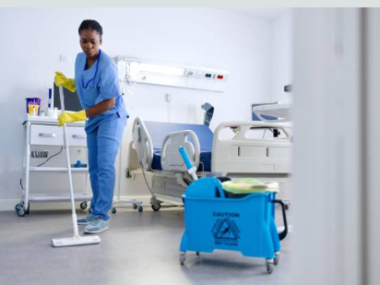The caregiver job in the USA has grown significantly in recent years, driven by the aging population and the need for in-home care services. As more individuals seek to age in place, caregivers have become an essential part of the healthcare system.
For those seeking a fulfilling and rewarding career, a caregiver job in the USA offers the opportunity to make a real difference in people’s lives.
Understanding the Caregiver Job in the USA
A caregiver, also known as a personal care aide or home health aide, assists individuals who need help with daily activities due to illness, injury, age, or disability. Caregivers work in various settings, including private homes, nursing homes, assisted living facilities, and hospitals.
Key Responsibilities of a Caregiver:
- Personal Care: Assist with bathing, dressing, grooming, and toileting.
- Mobility Assistance: Help with walking, transferring from bed to chair, and other mobility tasks.
- Companionship: Provide emotional support, social interaction, and conversation.
- Medication Management: Remind patients to take their medications and assist with basic medication administration.
- Household Assistance: Light housekeeping, meal preparation, and running errands.
- Health Monitoring: Tracks vital signs, such as blood pressure, temperature, and heart rate, if required.
Caregivers can work with individuals of all ages, from children with disabilities to elderly individuals with chronic health conditions. The role can vary widely depending on the patient’s needs, making it a dynamic and often rewarding profession.
Why Pursue a Caregiver Job in the USA?
There are several reasons why individuals pursue a caregiver job in the USA:
1. Job Security
The healthcare industry, particularly home care, is experiencing rapid growth. According to the U.S. Bureau of Labor Statistics (BLS), the employment of home health aides is projected to grow 34% from 2019 to 2029, much faster than the average for all occupations.
2. Personal Fulfillment
Caregiving offers the opportunity to build meaningful relationships and make a positive impact on the lives of those in need.
3. Flexible Hours
Many caregiver positions offer flexible work schedules, including part-time, full-time, or live-in arrangements, allowing individuals to balance work with personal life.
4. In-Demand Skill Set
With the rising demand for caregivers, job opportunities are abundant. Caregivers with specialized skills, such as experience with dementia patients or hospice care, can command higher salaries and better benefits.
5. Ability to Work Anywhere
Caregiving is needed in all parts of the United States, meaning that caregivers can find opportunities in urban, suburban, and rural areas alike.
Qualifications and Requirements for a Caregiver Job in the USA
The qualifications required to work as a caregiver in the USA vary depending on the employer and the level of care needed. While some positions require minimal training, others may require certification or formal education. Here are the key requirements:
1. Basic Education
Most caregiver positions require at least a high school diploma or equivalent. However, some employers may prefer candidates with additional education in healthcare or related fields.
2. Training and Certification
- Home Health Aide (HHA) Certification: Many caregivers choose to obtain certification as a Home Health Aide (HHA). This certification is typically earned through a state-approved training program and may include coursework in personal care, first aid, and CPR.
- Certified Nursing Assistant (CNA): Some caregivers pursue CNA certification, which requires completing a state-approved training program and passing a certification exam. CNAs are often tasked with more complex medical duties than HHAs, such as taking vital signs and assisting with medical procedures.
- CPR and First Aid: Many caregiving roles require basic CPR and first aid certification to ensure the safety of patients.
3. Experience
While formal experience in caregiving is not always required, prior experience in healthcare or working with individuals in need of assistance can be a significant advantage.
4. Background Check
Employers will typically require a background check to ensure that the caregiver has no history of criminal activity, particularly when working with vulnerable populations.
5. Soft Skills
In addition to formal qualifications, successful caregivers must possess excellent communication, patience, empathy, and a strong work ethic. These soft skills are essential in building trust with patients and providing compassionate care.
Where Can Caregivers Work in the USA?
Caregivers have a wide range of work environments to choose from, depending on their preferences and the needs of the patients. Here are some of the most common settings where caregivers are employed:
1. Private Homes
Many caregivers work in private homes, providing one-on-one care for individuals who prefer to live independently. This is one of the most common and flexible caregiving settings.
2. Nursing Homes and Assisted Living Facilities
Caregivers are often employed in nursing homes or assisted living facilities, where they provide support to multiple residents. These environments may involve working with individuals who have chronic health conditions, such as Alzheimer’s disease, or those who require more intensive care.
3. Hospitals
Some caregivers work in hospital settings, where they assist with post-operative care or provide support to patients with acute medical conditions.
4. Hospice and Palliative Care
Caregivers in hospice care provide end-of-life support to individuals with terminal illnesses. This type of caregiving requires compassion and a deep understanding of patients’ emotional and physical needs.
5. Group Homes
Caregivers can also work in group homes, providing care to individuals with disabilities, mental health conditions, or other special needs.
Salary Expectations for a Caregiver Job in the USA
The salary of a caregiver in the USA can vary based on location, experience, and the type of care required. However, the average salary for a caregiver is competitive, with the potential for higher earnings based on skill specialization.
Average Salary:
- Home Health Aides (HHAs): According to the U.S. Bureau of Labor Statistics, the median annual wage for home health aides in 2020 was approximately $25,280. However, wages can range from $20,000 to $35,000 per year, depending on experience and location.
- Certified Nursing Assistants (CNAs): CNAs generally earn higher wages, with a median annual salary of $30,830 in 2020.
- Specialized Caregivers: Caregivers with specialized experience in areas like hospice care or dementia support can earn higher salaries, ranging from $35,000 to $50,000 annually.
Factors Affecting Salary:
- Location: Caregivers working in cities or high-demand areas, such as New York, Los Angeles, or San Francisco, typically earn higher wages than those in rural areas.
- Work Setting: Working in a hospital or a facility offering more specialized care may lead to higher pay compared to home care positions.
- Experience and Certification: Caregivers with advanced training, such as CNA certification or experience in specialized care, tend to earn more than those with basic training.
How to Find Caregiver Jobs in the USA
There are several ways to find caregiver job opportunities in the USA:
- Online Job Portals: Websites like Indeed, Glassdoor, and Monster frequently list caregiver job openings across the country.
- Agencies: Many caregiver agencies specialize in matching workers with families or healthcare facilities in need of caregiving services. Examples include Visiting Angels, Comfort Keepers, and Home Instead.
- Networking: Connecting with healthcare professionals, joining caregiver groups on social media, or attending job fairs can help you find job leads and expand your network.
Conclusion
Caregiving in the USA offers a fulfilling and stable career path with excellent job prospects and the chance to make a real difference in people’s lives. With the right qualifications, training, and passion for helping others, you can embark on a rewarding journey in the caregiving field.
Whether you’re interested in private home care, hospital settings, or specialized roles like hospice care, the opportunities are vast and diverse. As the demand for caregivers continues to rise, now is the perfect time to consider a career in this essential and meaningful profession.






